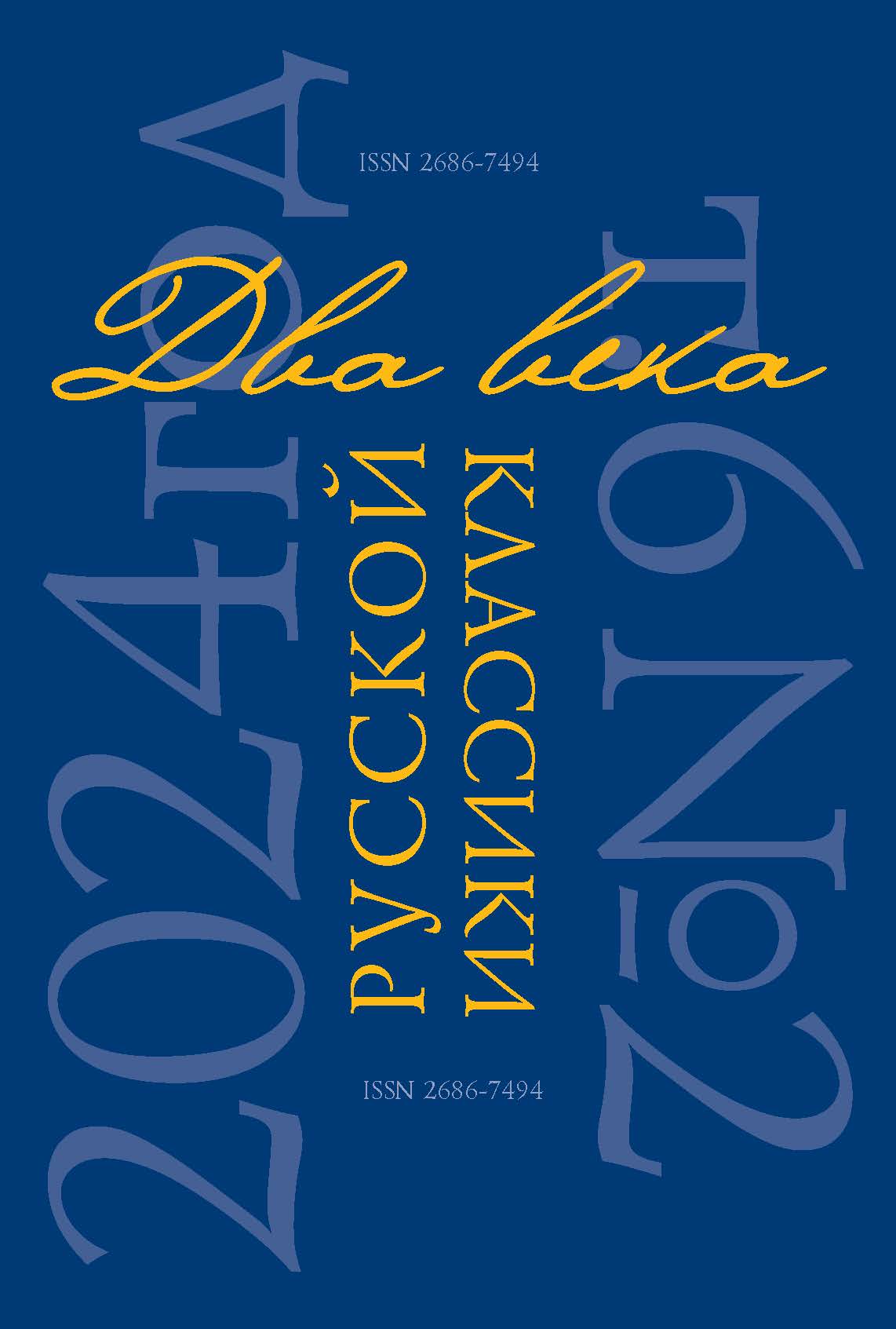Abstract: During the period of rapid development of science and technology among the main representatives of Russian classical literature, only Alexander Herzen and Ivan Goncharov experienced a deep and substantive interest in the philosophy of science. For the author of “The Precipice,” this interest was associated with the main issue around which the dominant problematics of his work is concentrated: this is the question of the compatibility of scientific thinking and traditional faith. This work examines mainly one aspect of the topic: the writer's interest in natural science and, above all, in astronomy. Darwinism, with its thesis on the origin of man from ape, and astronomical discoveries that activated thoughts about life on other planets, gave rise to doubts in the mass consciousness about the established religious picture of the world. Goncharov defined his attitude to these changes long before the outbreak of the crisis of religious consciousness in the 1860s. As a conservative and deeply religious person, he took scientific progress seriously, not opposing it to religion and considering it an instrument of God's Providence for humanity. The crisis of religious consciousness in Russian society of the 19th century is regarded as the main subject of Goncharov's artistic research, which binds “A Common Story,” “Oblomov” and “The Precipice” into a trilogy.
References
Gus'kov, S. N. “Zhiteli Luny: (kommentiruia ʽFregat Palladu’)” [“Inhabitants of the Moon: (Commenting on the “Frigate ‘Pallada’”)”]. Sub specie tolerantiae: Pamyati V. A. Tunimanova [Sub Specie Tolerantiae: In Memory of V. A. Tunimanov]. St. Petersburg, Nauka Publ., 2008, pp. 545–551. (In Russ.)
Kruglikova, O. S. “Evoliucionnaia teoriia Darvina v otrazhenii russkoi konservativnoi i liberal'noi pressy vtoroi poloviny XIX v.” [“Darwin's Evolutionary Theory as Reflected by the Russian Conservative and Liberal Press in the Second Half of the 19th century”]. Vestnik Moskovskogo universiteta. Seriia 10: Zhurnalistika, no. 5, 2018, pp. 101–119. (In Russ.)
Laitman, B. (Bernard Lightman). “ʽTezis o konflikte’ i nauchnyi naturalism” [“ʽThesis on Conflict’ and Scientific Naturalism”]. Gosudarstvo, religiia, tserkov' v Rossii i za rubezhom, no. 4 (33), 2015, pp. 11–35. (In Russ.)
Losev, A. F. Vl. Solov'ev [Vladimir Solovyov]. Moscow, Mysl' Publ., 1983. 206 p. (In Russ.)
Mel'nik, V. I. “Filosofskie motivy v romane I. A. Goncharova ʽOblomov’: K voprosu o sootnoshenii ʽsotsial'nogo’ i ʽnravstvennogo’ v romane” [Philosophical Motives in Ivan Goncharov’s novel ‘Oblomov’: On the Correlation of ‘Social’ and ‘Moral’ in the Novel]. Russkaia literatura, no. 3, 1982, pp. 81–99. (In Russ.)
Mel'nik, V. I. “ʽKrupnyi, mysliashchii i osmyslivaiushchii sintez…’ (Vozniknovenie zamysla romannoi trilogii I. A. Goncharova)” [“ʽThe Large, Thinking and Comprehending Synthesis…’ (The Emergence of the Idea of Ivan Goncharov’s Novel Trilogy)”]. Dva veka russkoi klassiki, vol. 2, no. 3, 2020, pp. 118–199. (In Russ.) https://doi.org/10.22455/2686-7494-2020-2-3-118-199
Strazheva, I. Udivitel'naia zhizn' Flammariona [The Amazing Life of Flammarion]. Moscow, Molodaia gvardiia Publ., 1995. 448 p. (In Russ.)
Tillikh, P. Izbrannoe. Teologiia kul'tury [Selected Works. Theology of Culture]. Moscow, Jurist Publ., 1995. 480 p. (In Russ.)









